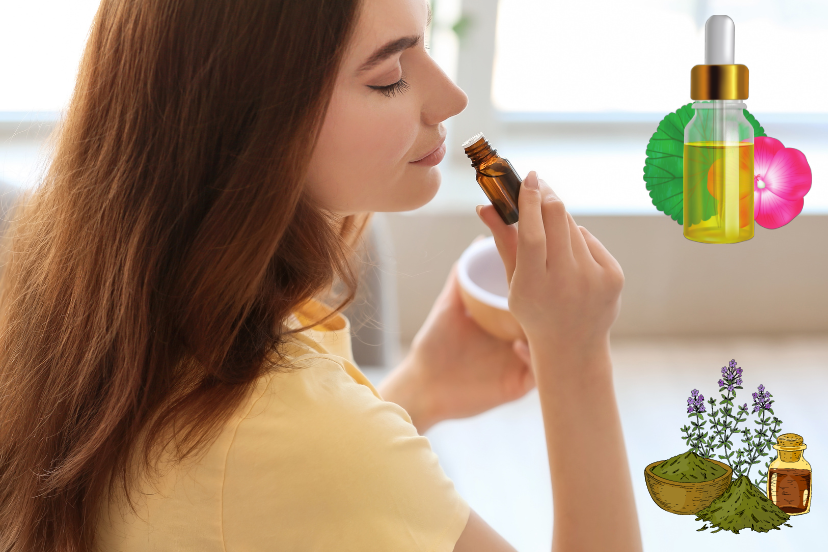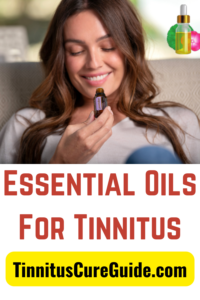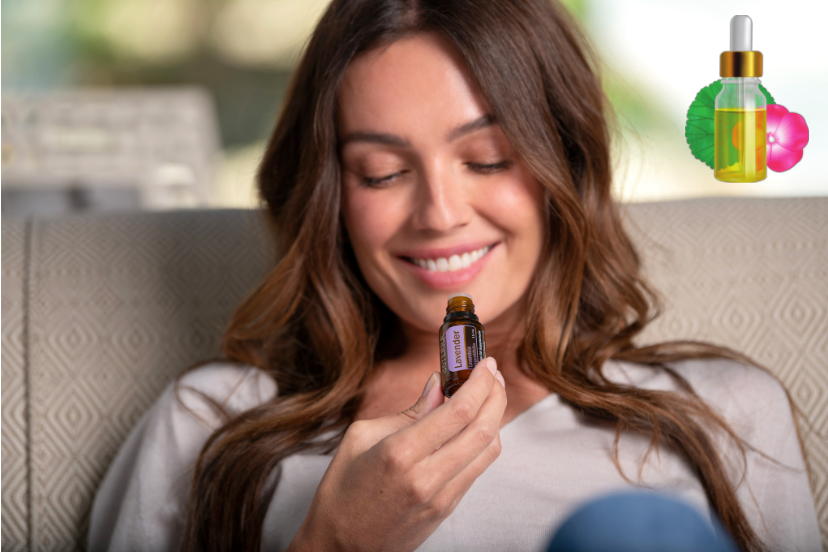Essential Oils For Tinnitus
Explore the potential of Essential Oils for Tinnitus relief. Dive into evidence-based insights and discover natural ways to soothe tinnitus. Living with ringing in the ears can be challenging. The constant ringing, buzzing, or hissing sound in your ears can be disruptive and affect your overall well-being. While there isn’t a definitive cure for tinnitus, there are natural remedies that can help manage its symptoms and improve your quality of life. One such option is using essential oils. In this “Essential oils for tinnitus” article, as a researcher and advisor on hearing health, I will share some helpful suggestions and reasons why essential oils can be beneficial for tinnitus sufferers.
Introduction
Tinnitus is a condition characterized by the perception of sound in one or both ears without any external source. It can vary in intensity and may be intermittent or constant. The exact cause of tinnitus is not always known, but it can be attributed to various factors such as exposure to loud noises, age-related hearing loss, earwax blockage, and certain medical conditions. Finding natural remedies is essential as they offer a holistic approach without the potential side effects of medications or invasive procedures.
Understanding Tinnitus
Before delving into the use of essential oils, it is essential to understand the nature of tinnitus. Tinnitus can manifest as ringing, buzzing, humming, or hissing sounds. It can be accompanied by ear pain, dizziness, and difficulty concentrating. The impact of tinnitus on an individual’s quality of life can be significant, leading to sleep disturbances, increased stress levels, and even depression or anxiety.
Introduction To Essential Oils
Essential oils are highly concentrated plant extracts obtained through various methods such as steam distillation or cold-pressing. They capture the natural compounds and aromatic qualities of plants, making them potent and versatile. Essential oils have been used for centuries in traditional medicine practices for their therapeutic properties. They can be beneficial for a wide range of conditions, including tinnitus.
Do Essential Oils Work For Tinnitus?
Essential oils are frequently touted as alternative remedies for various ailments, including tinnitus. Some oils, such as helichrysum, lavender, and cypress, have properties that theoretically address factors related to tinnitus, such as inflammation, stress, and poor circulation. Anecdotal evidence suggests certain essential oils can relieve tinnitus-related symptoms or associated stress. However, the scientific evidence directly linking essential oils to tinnitus relief needs to be more comprehensive and conclusive. While aromatherapy may offer some individuals a sense of relaxation and temporary symptom mitigation, essential oils should not be considered a standalone treatment for tinnitus. It’s crucial to consult with a healthcare professional before incorporating essential oils into a tinnitus management regimen, and one should never apply these oils directly to the ear canal.
What Oil Will Help With Ringing In The Ears?
Ringing in the ears, known as tinnitus, has been the focus of various alternative remedies, including essential oils. Some individuals find relief using oils like helichrysum, known for its potential nerve-regenerative properties, or lavender, renowned for stress relief. Cypress and juniper berry oils are believed to improve circulation, which might mitigate some tinnitus symptoms. While anecdotal reports suggest potential benefits, scientific evidence is limited. Before using any essential oil for tinnitus, it’s vital to consult a healthcare professional. Importantly, essential oils should never be directly applied to the ear canal.
Best Essential Oils For Tinnitus
Tinnitus is the perception of noise or ringing in the ears, a common problem affecting many people. Some individuals use alternative remedies, including essential oils, to relieve or manage symptoms. While scientific evidence on the efficacy of essential oils for tinnitus is limited, anecdotal reports suggest some oils might be beneficial.
Lavender Oil
Lavender essential oil is renowned for its wide-ranging therapeutic properties, particularly its ability to promote relaxation and reduce anxiety. For tinnitus sufferers, the distress and discomfort can often heighten feelings of stress. Using lavender oil in aromatherapy may help alleviate this stress, indirectly relieving tinnitus-related anxiety. Its calming scent can promote better sleep, which is beneficial as sleep disturbances are common among those with tinnitus. However, direct scientific evidence on lavender oil’s efficacy for tinnitus is limited, so using it as a complementary rather than a standalone treatment is essential.
Petitgrain Oil
Petitgrain essential oil is derived from the leaves and twigs of the bitter orange tree. It’s traditionally been used for its calming and balancing properties, often in aromatherapy for relaxation and stress relief. Its sweet and woody aroma can be uplifting and is believed to promote emotional equilibrium. While no direct evidence links petitgrain to tinnitus relief, its calming effects might indirectly help those suffering from tinnitus-related stress or anxiety. Always consult with a healthcare professional before starting any alternative remedies.
Helichrysum Oil
Helichrysum essential oil, derived from the Helichrysum italicum plant, is renowned for its healing properties. Touted for its anti-inflammatory and antioxidant benefits, it may assist in alleviating tinnitus symptoms by reducing inflammation and promoting nerve health. Its regenerative capabilities also aid in repairing damaged auditory nerves. While promising, direct scientific validation of helichrysum oil for tinnitus is limited. As always, users should avoid direct application into the ear and consult healthcare practitioners before incorporating this or any essential oil as a tinnitus remedy.
Benefits of Helichrysum Oil
Cypress Oil
Cypress essential oil, derived from the cypress tree, is often highlighted for its ability to improve circulation. Enhanced blood flow, especially in the head and ear region, can mitigate some tinnitus symptoms. Cypress oil also possesses calming properties, offering emotional balance for those disturbed by persistent ringing. While its circulatory benefits are promising, it’s vital to note that scientific evidence directly linking cypress oil to tinnitus relief remains sparse. Users should refrain from applying cypress oil directly into the ears and always seek advice from medical professionals before introducing it into a tinnitus management routine.
Juniper Berry Oil
Juniper Berry essential oil, sourced from the berries of the Juniperus communis plant, is reputed for its detoxifying and anti-inflammatory qualities. In the context of tinnitus, these properties might aid in alleviating underlying conditions or inflammations that amplify auditory disturbances. The oil’s calming aroma can also help reduce stress and anxiety often associated with persistent tinnitus. However, definitive scientific evidence linking Juniper Berry oil to tinnitus relief must be well-established. As a precaution, one should avoid direct application into the ears and always consult healthcare professionals before using the oil as a potential remedy.
Eucalyptus Oil
Eucalyptus essential oil, recognized for its invigorating aroma, enhances blood circulation. Improved circulation, especially in the neck and head area, might help alleviate tinnitus symptoms for some. Its anti-inflammatory properties can further help reduce internal ear inflammation that may contribute to the ringing sensation. When used in aromatherapy, eucalyptus oil can relieve sinus-related issues, which can sometimes exacerbate tinnitus. However, like other essential oils, it’s essential to approach its use with caution and always avoid direct insertion into the ear canal. Always consult with healthcare professionals before using eucalyptus or any oil for tinnitus relief.
Lemon Oil
Lemon essential oil is celebrated for its uplifting and purifying properties. In the context of tinnitus, its antiseptic and anti-inflammatory characteristics help reduce potential infections or inflammations that exacerbate ear-related issues. Furthermore, its bright aroma can enhance mood and alleviate stress, a common accompaniment of persistent tinnitus. However, while the aromatic benefits of lemon oil can provide relief, there’s no direct evidence linking it to tinnitus symptom reduction. As with other essential oils, it’s imperative not to apply lemon oil directly into the ears and to seek guidance from healthcare professionals before integrating it into a tinnitus care regimen.
Peppermint Oil
Peppermint essential oil, known for its cooling and invigorating properties, may benefit tinnitus sufferers. Its vasoconstrictive properties can improve blood circulation, potentially aiding in the reduction of tinnitus symptoms. Furthermore, peppermint oil possesses anti-inflammatory qualities that can alleviate internal swelling or inflammation contributing to auditory disturbances. Its refreshing aroma can aid mental clarity, counteracting the cognitive fatigue often associated with persistent tinnitus. However, one should never apply peppermint oil directly into the ears and always consult with healthcare experts before utilizing it as a tinnitus management strategy.
Basil Oil
Basil essential oil is reputed for its anti-inflammatory and antioxidant properties. For individuals with tinnitus, basil oil may offer relief by improving blood circulation around the ear and reducing inflammation that might contribute to the condition. Furthermore, its antispasmodic properties can relieve muscle tension related to tinnitus. Inhaling its aromatic essence may also promote relaxation, which can be helpful for those experiencing tinnitus-induced stress. However, direct application into the ear is not recommended, and it’s crucial to seek expert advice before incorporating basil oil or any essential oil into a tinnitus management regimen.
What Is The Best Essential Oil For Tinnitus?
Tinnitus, a condition marked by a persistent ringing or buzzing in the ears, has driven many to explore alternative treatments, including essential oils. Helichrysum oil is often spotlighted due to its purported nerve-regenerative and anti-inflammatory properties, potentially addressing tinnitus’s root causes. Lavender oil, known for its calming effects, may help alleviate the stress and anxiety commonly associated with tinnitus. Cypress and juniper berry oils, believed to enhance circulation, could also provide relief. However, while anecdotal accounts suggest these oils may be beneficial, concrete scientific evidence supporting their tinnitus efficacy still needs improvement. It’s imperative for individuals to consult with healthcare professionals before employing any essential oil for tinnitus and to avoid direct application into the ear canal.
How To Use Essential Oils For Tinnitus

There are several ways to use essential oils for tinnitus relief:
Inhalation
Add a few drops of essential oil to a diffuser or inhale directly from the bottle. This method allows the aromatic molecules to enter the respiratory system and provide a calming effect.
Topical Application
Dilute the essential oil with a carrier oil, such as coconut oil or jojoba oil, and apply it to the skin behind the ears or on the neck. Gently massage the area to enhance absorption.
Massage Therapy
Combine a few drops of essential oil with a carrier oil and massage the neck, shoulders, and temples. This can help relax the body, reduce tension, and improve blood circulation.
Diffusion
Add a few drops of essential oil to a bowl of hot water or use a diffuser to disperse the oil molecules into the air. This method creates a soothing ambiance and allows for easy inhalation.
Additional Lifestyle Changes For Managing Tinnitus
In addition to using essential oils, specific lifestyle changes can help manage tinnitus symptoms:
Maintaining A Healthy Diet
Eating a balanced diet rich in antioxidants, vitamins, and minerals can support overall ear health. Avoiding excessive caffeine, alcohol, and processed foods is also beneficial.
Regular Exercise
Regularly engaging in physical activity can improve blood circulation and reduce stress, which can positively impact tinnitus symptoms.
Stress Management Techniques
Incorporating relaxation techniques such as deep breathing, meditation, or yoga into your daily routine can help alleviate stress and minimize tinnitus-related distress.
Precautions And Considerations
While essential oils can provide relief for tinnitus, it is important to take certain precautions:
Patch Test For Allergic Reactions
Before using any essential oil topically, conduct a patch test on a small skin area to check for any allergic reactions or sensitivities.
Consulting A Healthcare Professional
If you have underlying medical conditions or are currently taking medications, it is advisable to consult with a healthcare professional before using essential oils for tinnitus.
Avoiding Direct Ingestion
Essential oils are highly concentrated and can be toxic if ingested in large quantities. They should be used externally or inhaled, following proper dilution guidelines.
What Is The Best Natural Remedy For Tinnitus
Tinnitus, characterized by an often-disturbing ringing or buzzing in the ears, can be challenging to treat. Several natural remedies have gained popularity among those seeking non-medical interventions. Ginkgo biloba, a herbal supplement, is believed to improve blood flow to the ears, potentially reducing symptoms. Zinc and magnesium supplements have also been explored, as deficiencies in these minerals might exacerbate tinnitus for some individuals. Acupuncture and biofeedback have been pursued as potential therapies to manage tinnitus-associated stress and amplify body awareness. Masking techniques, like white noise machines or hearing aids, can naturally drown out tinnitus sounds, providing relief. Although anecdotal evidence supports some of these remedies, robust scientific validation still needs to be discovered. Always consult a healthcare professional before embarking on any natural treatment regimen for tinnitus.
Frequently Asked Questions (FAQs)
Can essential oils completely cure tinnitus?
Essential oils cannot cure tinnitus completely, but they can help manage its symptoms and improve your quality of life.
How long does it take for essential oils to show results?
The timeframe for seeing results may vary depending on the individual and the severity of their tinnitus. Some people may experience relief shortly after using essential oils, while others may require more time.
Are there any side effects of using essential oils for tinnitus?
Essential oils generally have minimal side effects when used correctly and in moderation. However, it is important to be cautious of any allergic reactions or skin sensitivities. Always perform a patch test before using an essential oil topically.
Can essential oils be used alongside other treatments for tinnitus?
Yes, essential oils can be used in conjunction with other treatments for tinnitus. However, consulting with a healthcare professional to ensure compatibility and avoid any potential interactions is advisable.
What essential oils help with hearing loss?
While essential oils may provide comfort or reduce related symptoms, no oil has been scientifically proven to reverse hearing loss. Helichrysum is sometimes suggested for its purported nerve-regenerative properties. Always consult a healthcare professional before use.
Are essential oils safe for everyone to use?
While essential oils are generally safe for most people, there may be exceptions. Certain essential oils may not be suitable for pregnant or breastfeeding women, children, or individuals with specific medical conditions. It is best to consult with a healthcare professional before using essential oils if you fall into any of these categories.
Essential Oils For Tinnitus – Conclusion
Essential oils can be a valuable addition to your tinnitus management routine. Their natural properties and soothing effects can help reduce stress, inflammation, and promote overall well-being. However, it is essential to remember that tinnitus is a complex condition, and results may vary from person to person. It is recommended to experiment with different essential oils and methods of application to find what works best for you. Remember to consult a healthcare professional with any concerns or questions.
Disclaimer
This article is for informational purposes only and does not substitute professional medical advice. Always consult a licensed healthcare provider before beginning new treatments, supplements, or exercise programs for tinnitus or related conditions.

- Why Is Tinnitus Worse At Night
- Can Hearing Aids Make Tinnitus Worse
- Homeopathic Remedies For Tinnitus Relief





